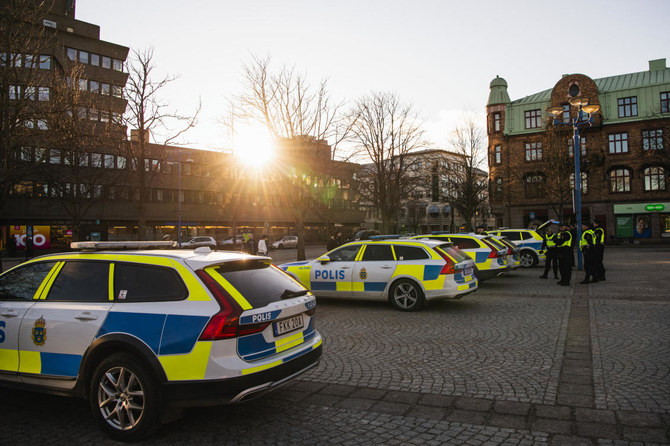LONDON: Afghans who worked for the UK military and who are at risk of Taliban reprisal attacks are being refused sanctuary in the UK, The Independent reported.
The revelations are part of an investigation by the newspaper into Britain’s relocation policies regarding Afghan military personnel who aided UK forces.
The Independent’s latest report found that former mechanics, laborers and chefs are being rejected by the Afghan Relocations and Assistance Policy scheme because they fail to classify as having served in frontline roles alongside British troops.
But that distinction is not recognized by Afghanistan’s Taliban rulers, with the former staff and contractors facing revenge attacks as a result of their work for British forces.
Tobias Ellwood MP, chair of the defense select committee, warned that the Taliban were still hunting Afghan workers who aided Western forces.
He said: “I don’t believe the Taliban share the same criteria. They gained access to databases of all local Afghans who were assisting ISAF forces and local Taliban continue to hunt them down for execution. Each case should be judged on its own merit.”
Some of the Afghans who aided the UK war effort and who fled to the UK in the wake of the Taliban takeover have appealed to the government to help their former colleagues still trapped in Afghanistan.
But Armed Forces Minister James Heappey has said that the government has no intention of expanding the ARAP criteria to include former non-frontline staff and contractors.
An Afghan mechanic who repaired troop carriers and armored vehicles during the conflict was rejected by the scheme last year, but is now appealing the decision through a judicial review.
He was left jobless when British troops pulled out of the country, and later worked for NGOs and as a contractor for private military forces.
But following the Taliban takeover, the man was forced into hiding, with his former colleagues demanding that the UK grant him sanctuary through the ARAP scheme.
A former British Army adviser and colleague of the mechanic told The Independent: “We are trying to do our best for him and his family but he is in a very bad situation. A lot of people are being disappeared and he is all the time hiding himself because many people know that he worked with the British Army.
“Lots of people in the same situation applied for ARAP. I don’t know why ARAP just rejected his case.”
The mechanic’s solicitor, Stephanie Alban, who is challenging the decision, said: “His life is in danger so I thought they would deal with it in days and not weeks. He is in hiding and he has been moving to avoid the Taliban.
“People in the local area would know that he worked for the British. He’s on their record so they will be looking for him and targeting him. It feels like these employees have just been forgotten. You shouldn’t have to do judicial reviews just to get a simple decision on a straightforward case.”
Other Afghan personnel denied by the ARAP scheme have said that they were still exposed to danger and risk despite not serving in frontline combat roles.
A former guard who protected a British Army camp said that he was fired at during a terrorist attack on the base, but was still rejected by the UK on account of his guard role.
Since the Western withdrawal, he has received threats from the Taliban as well as Daesh, which has a small presence in Afghanistan.
As a result, the former guard has moved his family to new homes around the country to avoid reprisal attacks.
In a review into his ARAP application, the man said: “Security at the camp was vital in order to ensure the safety of the British and other NATO soldiers in the camp.
“As such, the camp and the military operations carried out from the camp could not have functioned without the presence of security guards like myself.”
The Independent also spoke to relatives of personnel who have been rejected by ARAP, including former British Army chefs and laborers.
One interpreter said that his brother, a former laborer, had gone into hiding to avoid the Taliban after the Western withdrawal.
“He is in the same risk as me. It is not written on his face that he was a laborer and not an interpreter. We were all working with the British Army and we were all the same in the Taliban’s eyes.
“They have already killed one of our other brothers in front of our family home in 2020. He was working to help the American and British troops and they encountered him and shot him.”
A Ministry of Defence spokesperson said: “We owe a debt of gratitude to those interpreters and other staff eligible under the ARAP scheme who worked for, or with, UK forces in Afghanistan in exposed roles.
“Our absolute priority is supporting the movement of eligible people out of Afghanistan and, to date, we have relocated over 12,200 individuals to the UK under ARAP.






















